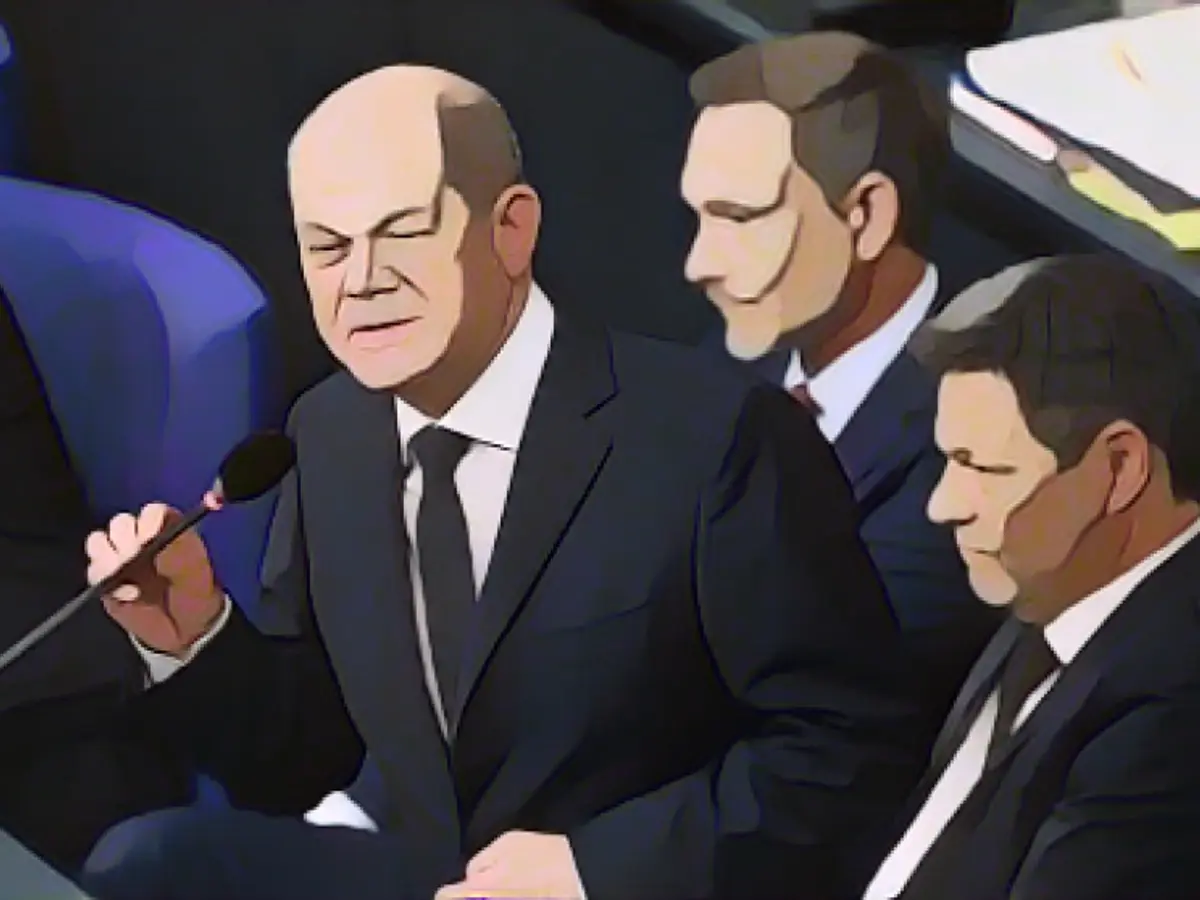"The Budget Bunfight"
The traffic lights have some serious shades of red!
Today, the Budget Committee in the Bundestag squared off on the traffic light fiasco: state budgets that aren't constitutional, frozen budgets, and budget deficits nearing billions. Plus, the SPD, Greens, and FDP's push for a rush on the 2024 budget.
This head-on collision saw seven out of eight legal, financial, and economic experts slam the traffic light party with harsh criticism. Even the new budget itself is deemed unconstitutional! And the legislative process might be just as illegitimate.
What the experts have to say about this budget mess
The experts warned the traffic light coalition time and time again this wouldn't work. In 2022, they sounded the alarm in every key committee, but their voices were drowned out. Now, the business location is on the brink. In the eyes of the experts, if the nation faces an emergency, it's the traffic lights' doing.
▶︎ Prof. Michael Hüther (Institut der Wirtschaft, IW) warned that potentially cutting investments could lead to a stubborn investment crisis, causing GDP not to grow next year.
▶︎ Bundeswehr University Hamburg's Prof. Dirk Meyer was the most direct, stating bluntly that this is a "failure of the current government." The traffic light coalition should stick to the constitution and take the Federal Audit Office's warnings into account, as they pointed out early on that the traffic lights were skating on thin ice.
▶︎ Jan Keller from the Federal Audit Office agreed that they had issued clear and early warnings that the traffic light coalition's financial policy had significant constitutional concerns.
▶︎ Economist Professor Thiess Büttner (University of Erlangen-Nuremberg) reported that even in the Federal Government's Stability Council, it had been made clear several times that the budget policy of the traffic light coalition was "fraught with considerable constitutional risks." The traffic light coalition ignored all of this, and now, "we must return to legal certainty for the state."
▶︎ Tax law expert Prof. Dr. Hanno Kube (University of Heidelberg) argued that the 2024 budget could not be passed now because without knowing what financial resources are still available, one cannot plan seriously for the next year. Kube's opinion on the state budget, still desired by the traffic light government: "It would stand on shaky ground."
No escape routes in this budget crisis
Legally and economically, the traffic light coalition found itself with no way out.
Declaring an emergency to bypass the debt brake isn't necessary, nor is it feasible from a legal standpoint to pass the 2024 budget, despite the unclear effects of the current budget crisis. Only one expert, Prof. Jens Südekum from the University of Düsseldorf, believed the budget for the coming year could be temporarily adopted, followed by a supplementary budget. SPD budget expert Denis Rohde seized on Südekum's suggestion but admitted the provisional budget for 2025 could only be drawn up at this point.
Could tax increases be the solution?
Prof. Dr. Berthold Wigger from the Karlsruhe Institute of Technology cautioned against the simplest option: tax increases. The reason? Germany had lost its appeal as a tax-friendly destination – especially for companies – in recent years. Wigger stressed that the traffic light chaos has led to significant uncertainty in both the economy and private investments.
Despite the experts' warnings, the traffic light coalition continues to press for the passage of the 2024 budget, despite concerns over its constitutionality and likelihood of an illegal legislative process. Professor Dirk Meyer from the Bundeswehr University Hamburg bluntly stated that the current situation is a "failure of the current government," urging them to adhere to the constitution and consult the reports of the Federal Audit Office.
Source:
Enrichment Data:
- Debt Brake Violation: Article 115 of the German Basic Law stipulates a balanced revenue and expenditure without borrowing, with debt brake limiting loans to 0.35% of GDP. The coalition's proposed budget exceeded these limits.
- Funding disagreements: The coalition partners had differing views on how to fund the budget. The SPD and Greens favored loans to fill the budget shortfall, while the FDP opposed new debt and preferred to cut social spending.
- Shortfall and lack of agreement: The 2025 budget had a €25 billion shortfall and the coalition couldn't agree on addressing it, causing the coalition's collapse.
- Economic Challenges: Germany faced high energy costs, a manufacturing slowdown, and weak demand for exports, aggravating budget balance difficulties.
- Political Turmoil: The dismissal of Finance Minister Christian Lindner by Chancellor Olaf Scholz under deep political disagreements exacerbated the coalition's troubles, leading to its eventual dissolution.








